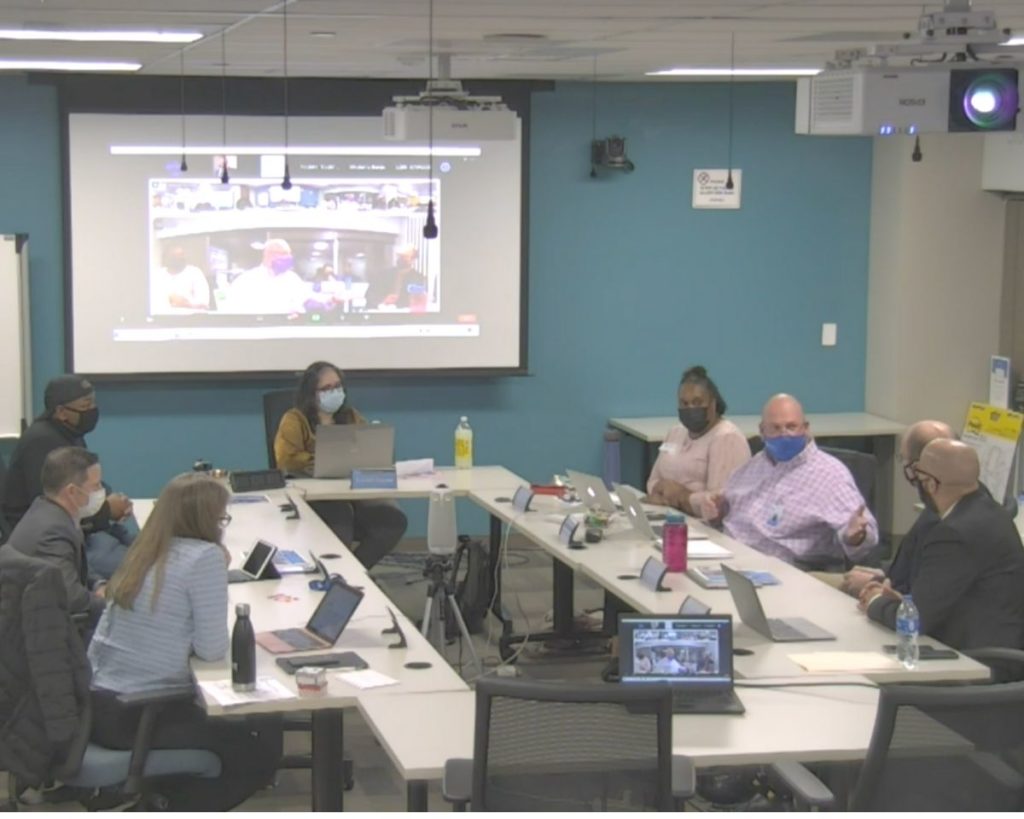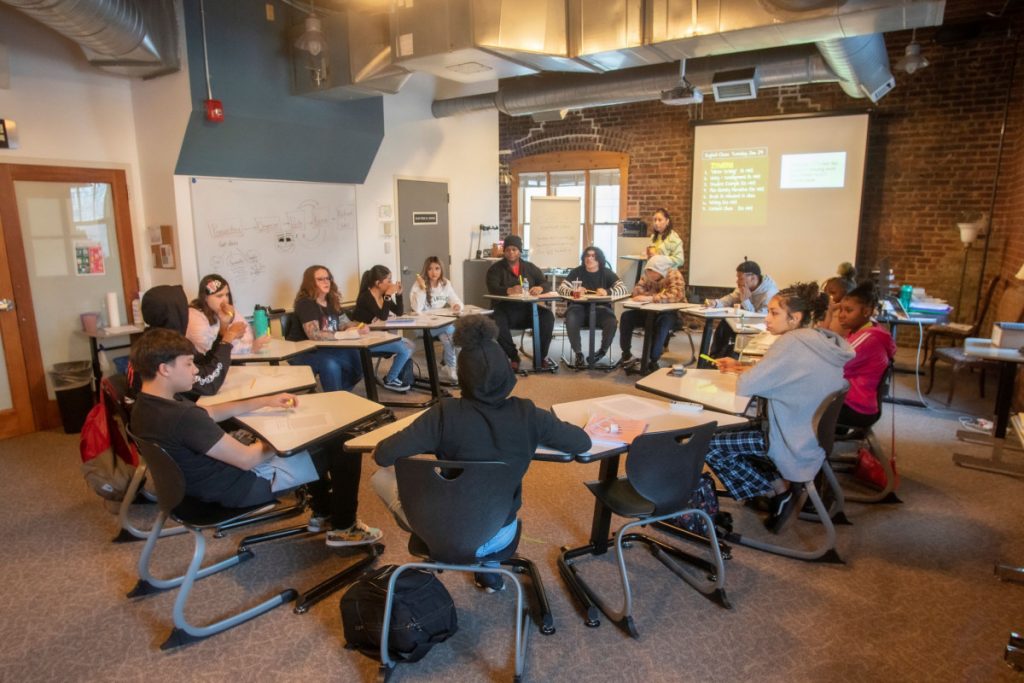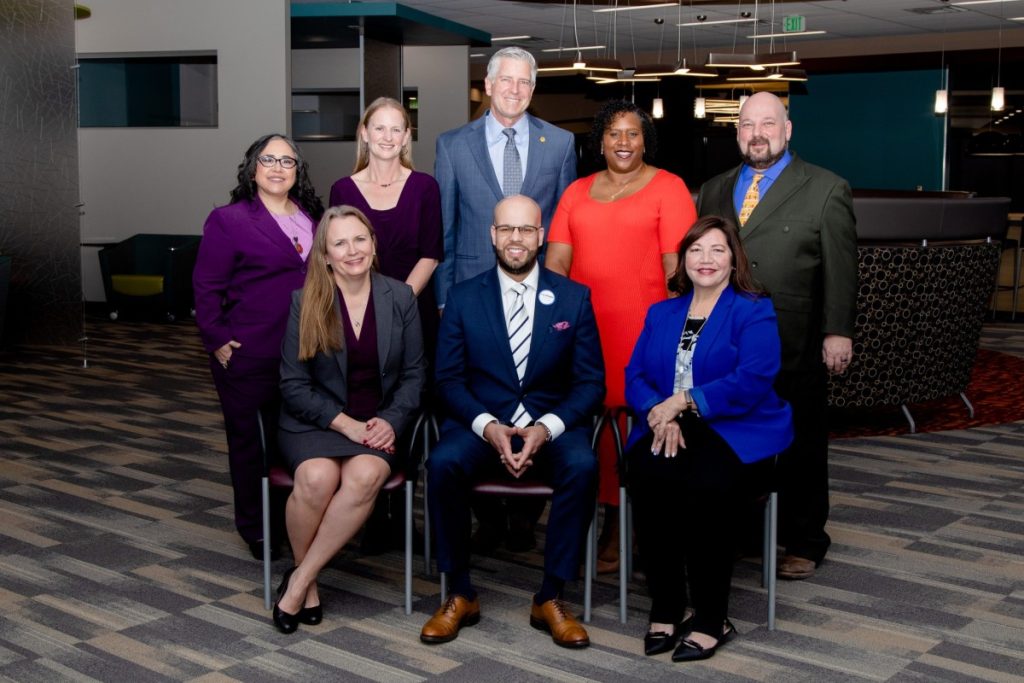As the Denver school board mercifully takes a summer hiatus, perhaps tempers will cool and the new school year can begin in August with a board that is focused on what matters and not on in-fighting.
That’s not going to be easy after last Thursday. Minutes before a day-long board retreat was to begin, Westword dropped an article in which board President Xóchitl “Sochi” Gaytán unloaded on fellow board members Tay Anderson and Scott Esserman, accusing them of a mix of sexism, misogyny and racism for disrespecting and undermining her role as president.
She also said she feared the two men were preparing a coup against her, to be sprung during Thursday’s retreat. No such coup occurred. At the meeting’s outset, however, board members expressed displeasure at Gaytán’s printed tirade, which she repeated on Denver 7 TV news as well.
It’s notable how closely the school board’s implosion has tracked with similar occurrences at progressive non-profits across the country. A lengthy article in The Intercept chronicles this in fascinating detail.
Here’s a key excerpt from the article, that could easily have been written about Denver Public Schools and its board:
“…Most of the foundation-backed organizations that make up the backbone of the (Democratic) party’s ideological infrastructure were still spending their time locked in virtual retreats, Slack wars, and healing sessions, grappling with tensions over hierarchy, patriarchy, race, gender, and power.
“So much energy has been devoted to the internal strife and internal bullshit that it’s had a real impact on the ability for groups to deliver,” said one organization leader who departed his position. “It’s been huge, particularly over the last year and a half or so, the ability for groups to focus on their mission, whether it’s reproductive justice, or jobs, or fighting climate change.”
Or, in the case of DPS, kids.
I’ve written recently about the board’s dysfunction and personal animosities, so I won’t repeat that here. Suffice it to say that tempers have frayed further since the board voted to appoint Charmaine Lindsay to fill the remaining 17 months or board member Brad Laurvick’s term.
That, coupled with the board’s vote Thursday to claw back at least some key autonomies for innovation schools, represented the second major loss in a week for Gaytán and Scott Baldermann, her closest board ally. Perhaps that helps explain the timing of Gaytán going public with her complaints.
Since neither news outlet that aired Gaytán’s coup allegations followed up when the coup failed to materialize, I reached out to Anderson to hear his side of the story, about these latest developments as well as how interpersonal dynamics are hindering the board’s work. I reached out to Esserman as well, but he did not respond.
Anderson also shared with me a series of email exchanges between him and Gaytán, and in some cases DPS staff. In none of those exchanges did I see any hint of him being aggressive, disrespectful, misogynistic or sexist.
But as an older white man, my view might be skewed. I also don’t know if there are additional e-mails out there that show something different.
This interview has been condensed and edited for clarity.
Boardhawk: Let’s start with some of the accusations Sochi Gaytán leveled against you in the Westword article. She said you and Esserman “attacked me verbally, they’ve attacked my leadership, and they’ve shown sexism and their misogynistic ways.”
Anderson: I still await any evidence from our president to substantiate her claims. It’s really harmful when we throw out those narratives and that type of rhetoric, because we take focus away from our students. That should be our direct focus, not adult politics or behavior.
Boardhawk: Westword linked to a letter Gaytán detailing some of her allegations. She focused in part on a conversation between you, her, and senior DPS staff about letting a group of Black students, leaders of the Know Justice Know Peace movement, speak in person at a public comment session of the board. She said you engaged in “race-baiting” by complaining that mostly white athletes were honored in person, but that Black students weren’t being accorded that same respect.
She concluded by writing: “This is only one example of many where Tay Anderson continues to exhibit sexist and misogynistic behavior by raising his voice at women (and women of color at that), being constantly argumentative by using race baiting strategies and creating a hostile work environment for all those present in work meetings.” How do you respond to this?
Anderson: I was able to go on the 2022 trip to Washington D.C. with 35 students and 20 adults to learn about the origins of the Know Justice Know Peace work that started in Washington D.C., and the students branched off from there. The students asked me if they could come to public comment and share their experience with the board.
We’ve lifted Covid restrictions. We don’t wear masks anymore, or they’re optional. We’ve had crowded rooms to celebrate our hockey team, our Northfield soccer team and so many other accolades. I asked her Chief of Staff’s office if we could make the accommodation for these 35 students to be able to come and make sure that their public comment is in person. And at first the Chief of Staff’s office said yes, they would make that accommodation happen.
I checked in again and during a bi-weekly meeting and it sounded like Sochi had reversed that decision. I was very confused about why, and nobody would give me an explanation.
And I’m saying if it’s Covid, how can you use that excuse for the 35 black kids not getting public comments when we have had larger groups in the room, celebrating them for their achievements and sports? Where’s the equity in that conversation?
And so my tone was elevated, but it wasn’t a screaming and hollering thing. And even after that call, Sochi and I stayed on the Google Meet and I explained to her this is the reason why I’m so passionate because I was told yes initially. And her response was ‘Oh, I didn’t know that. We should definitely have checked in prior to this, because I would have actually understood more where you were coming from if we would have had that check in.’
I’m disappointed that she is trying to use that as an example of ill behavior because she knows that wasn’t the case. I was just calling out the hypocrisy and you can’t get mad at me for being passionate about this.
Boardhawk: What about this coup allegation? What’s your response to that?
Anderson: I am as lost as our general public is about these allegations. And you know, it’s June 17th. President Gaytán is still president. There wasn’t an insinuation in any of our conversations (last Thursday) that we were coming for an individual or the role of the president or anything of that nature.
But we should remember that power shouldn’t be about a title. We should be talking about collective power, because we’re not a board of one individual. We are a board of seven. Lisa Calderon (a longtime local activist), a strong supporter of Sochi’s, recently said that Robert’s Rules of Order are outdated and uphold white supremacy. I understand where she’s coming from.
But if we’re going to talk about things that are outdated, let’s talk about this hierarchical system that we currently live in (on the board), and let’s talk about how to share the leadership roles and ensure that there is no issue where one person has control over another.
Boardhawk: How does the board get past all of this animosity and infighting and start to work together?
Anderson: As a board we have to be able to have a real check-in with each other. And I know (some board members) don’t want to do that sort of conversation in public because people don’t want to be vulnerable in public. They’d rather have these conversations in private.
But in my opinion, the time has elapsed for us to have these off-the-record conversations because they have now become so public. And our community needs to see us work together to understand that harm has been caused, and we must be able to do some true restorative or transformative justice work in order to move forward.
I am grateful that (new Board member Charmaine) Lindsay on several occasions Thursday talked about how our priorities are off track as a board and how we are focusing more on ourselves than we are on the students. I really needed that sort of moment to have a check. Because it wasn’t a direct call out to anybody. She called us all in as a board and that’s something that (board member) Michelle Quattlebaum expressed yesterday, That we need to be able to have spaces for call-ins not call-outs.
Boardhawk: What does that mean?
Anderson: The superintendent’s staff has been working hard behind the scenes to make sure these conversations can happen, in a board retreat. I’m hopeful that the conversation will happen prior to the beginning of the new school year, acknowledging that there has been some tension, so we can be able to get back to the work on behalf of our students.




